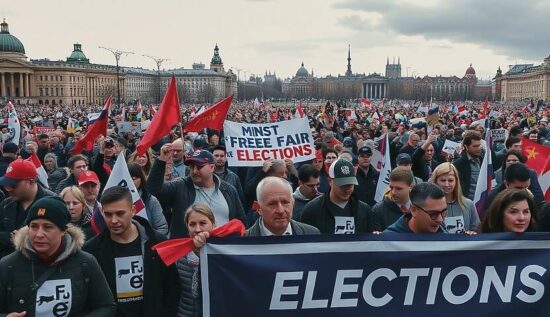The presidential election in Belarus is taking place on Sunday, with incumbent President Alexander Lukashenko casting his vote in the morning at a polling station in the capital, Minsk. Surrounded by his white Spitz, Umka, Lukashenko answered journalists’ questions before and after voting.
When asked who he had voted for, Lukashenko replied, “I must be honest, for all of them.”He added that he is in a dialogue with his opponents, whom he referred to as the opposition. The president dismissed the sharp criticism of the election process from the EU, showing no concern for the announcement by Brussels that it will not recognize the outcome of the election.
“It won’t have any impact on us, whether the European Union recognizes the election or not”Lukashenko said. “Believe me, it’s absolutely of no importance to me whether you recognize our election or not. What’s important is that the Belarusians recognize this election and that the election ends as peacefully as it began.”
The European Parliament had already condemned the election in Belarus as a sham on January 22, calling on EU member states and the international community not to recognize Lukashenko as a legitimate president after January 26, 2025. The government, led by the politician in power since 1994, described the EU’s statement as illegitimate and expressed support for the Belarusian people “in their struggle for democracy, freedom and human rights.”
Lukashenko rejected the criticism, asking how one could evaluate something that had not yet taken place. The value of the EU’s statement, he said, was therefore zero.
Early voting for the presidential election in Belarus began on January 21. In addition to Lukashenko, four other candidates are vying for the top office: Oleg Gaidukevich, Anna Kanopatskaya, Sergei Syrnik and Alexander Chischnyak. The voting will take place from 8 a.m. to 8 p.m. local time, with over 5,000 polling stations open across the country. For the first time in the country’s history, there are no polling stations abroad, with the authorities citing security concerns and a lack of personnel at diplomatic missions. Some 6.9 million citizens are eligible to vote and the election is considered valid if more than half of the electorate casts a ballot.





